These are the results of an online survey of Ukrainian refugees conducted by Info Sapiens, in cooperation with the Apostolic Exarchate in Italy from 22 April to 7 May. A total of 889 respondents were interviewed. The sample is not representative of all refugees, as respondents were recruited using the "snowball" method. The largest number of the respondents was interviewed in Italy (260), Germany (166) and Poland (173), while in the rest of the countries there were not enough respondents for a separate analysis.
The main factor for Ukrainian refugees influencing the decision to go abroad was hostilities or bombing. Only 13% said their settlement was relatively safe.
In general, 97% of the refugees felt the negative effects of the war. The most common negative consequences are family separation (54%), significant reduction in income (42%), job loss (39%), and severe psychological consequences (40%).
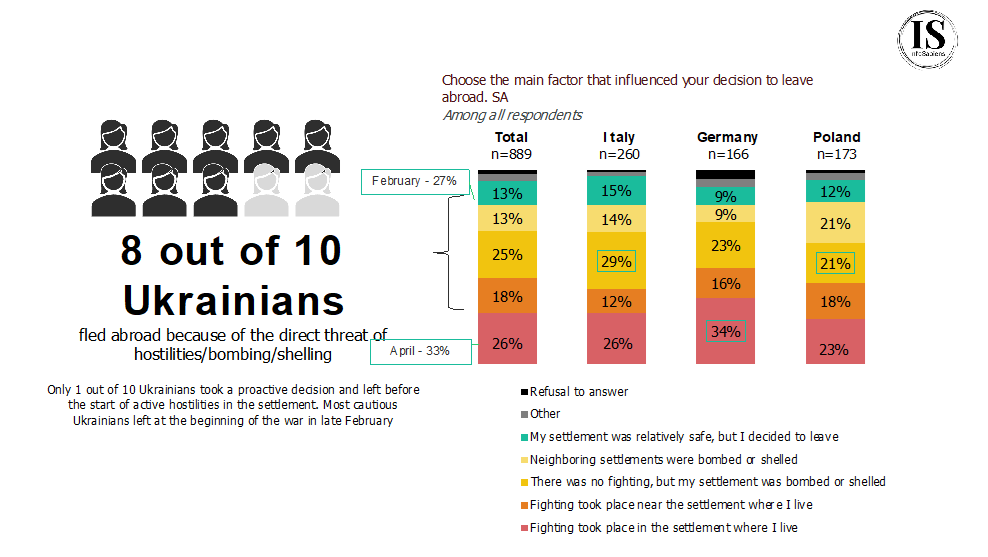
The majority of Ukrainians went to the countries where they had friends, acquaintances or relatives. Only 14% were aimed at benefits, but there are twice as many among the refugees in Germany.
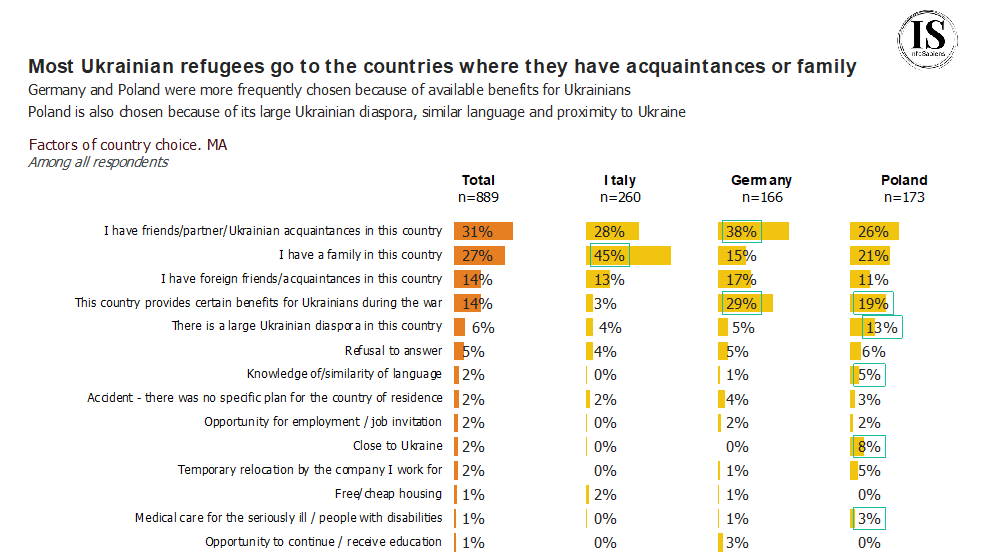
63% of the refugees received assistance while staying abroad: 80% in Germany, 68% in Poland, and 52% in Italy.
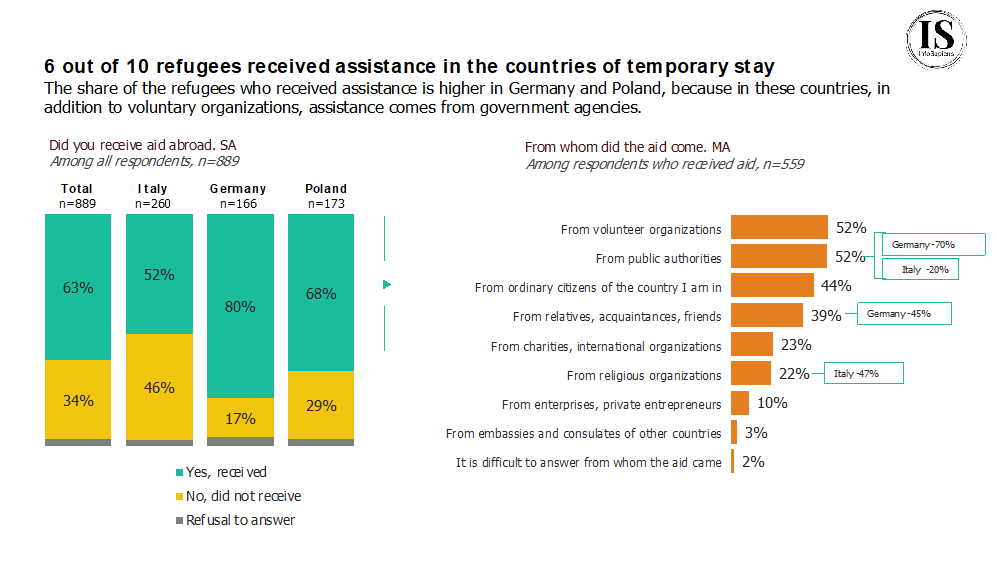
The most common is humanitarian aid (47%), providing housing (36%), financial support (35%) and assistance with legalization (32%). However, the distribution of financial support does not correspond to the material losses suffered by the residents of different regions of Ukraine. Despite the fact that financial resources are most limited (highest share of refugees who have completely lost income and/or work) among the residents of eastern and southern Ukraine, the highest share of refugees who received financial assistance is among the residents of Kyiv.
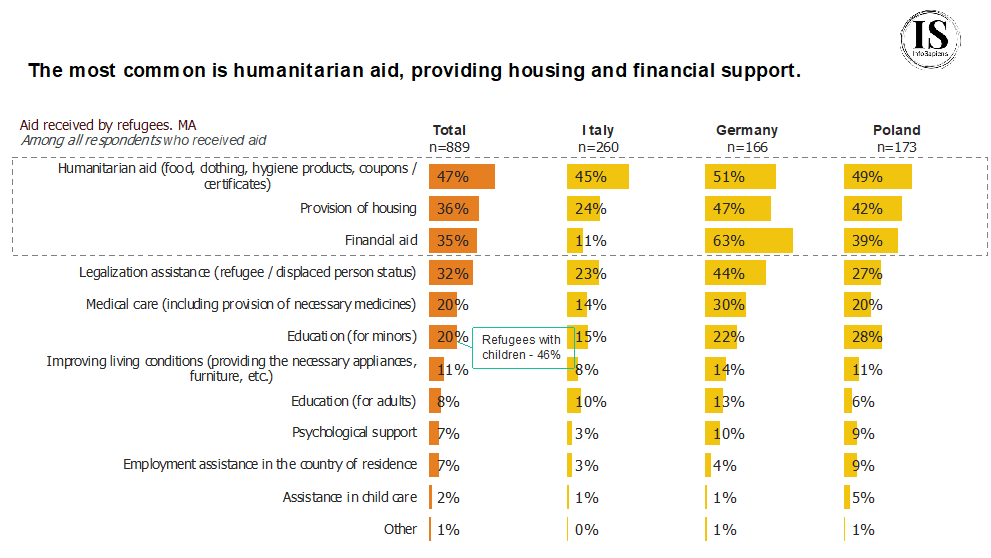
83% of the refugees still need help in the country where they live. The share of such refugees is lower among the refugees who do not have children (77%), as well as among the refugees from Kyiv (76%) and the north (78%) of Ukraine. The refugees primarily need financial support (50%) and employment assistance (39%). The majority of the refugees from the south, west, north and east of Ukraine expect financial support. The issue of employment is most common among the refugees from eastern and southern Ukraine.
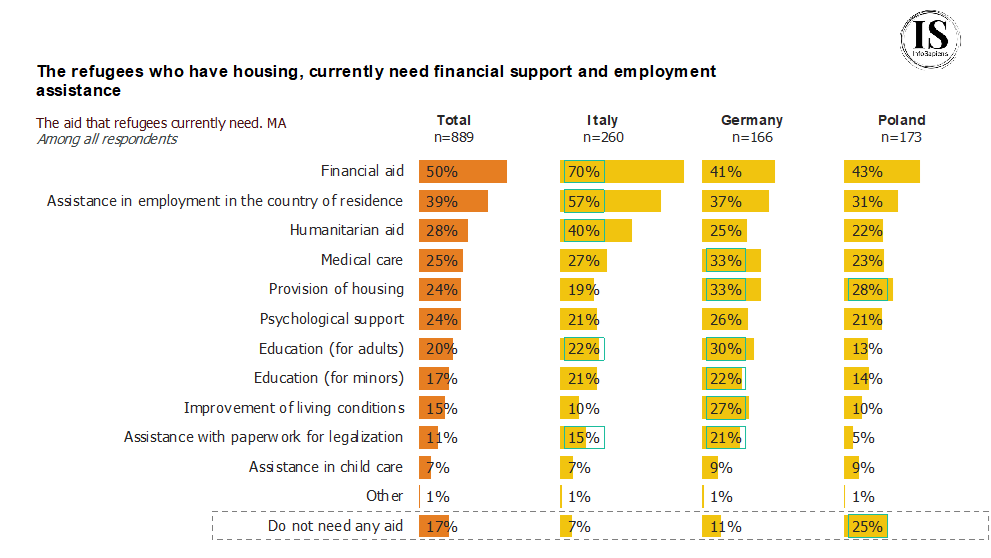
At the same time, 73% are trying to improve their situation abroad. In particular, 39% are working and 31% are looking for work.
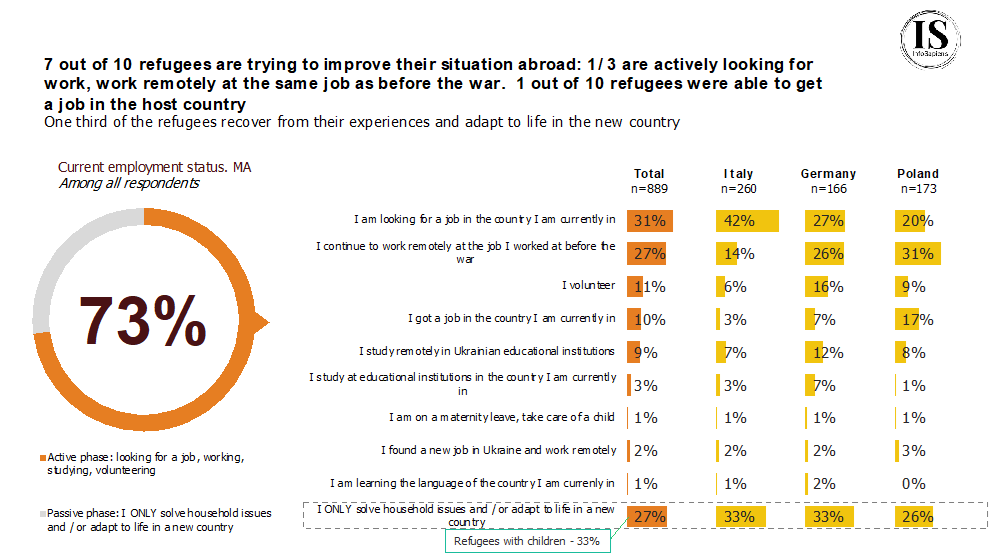
Also, 28% of the refugees are involved in volunteering, another 20% make charitable contributions, and another 28% would like to do something.
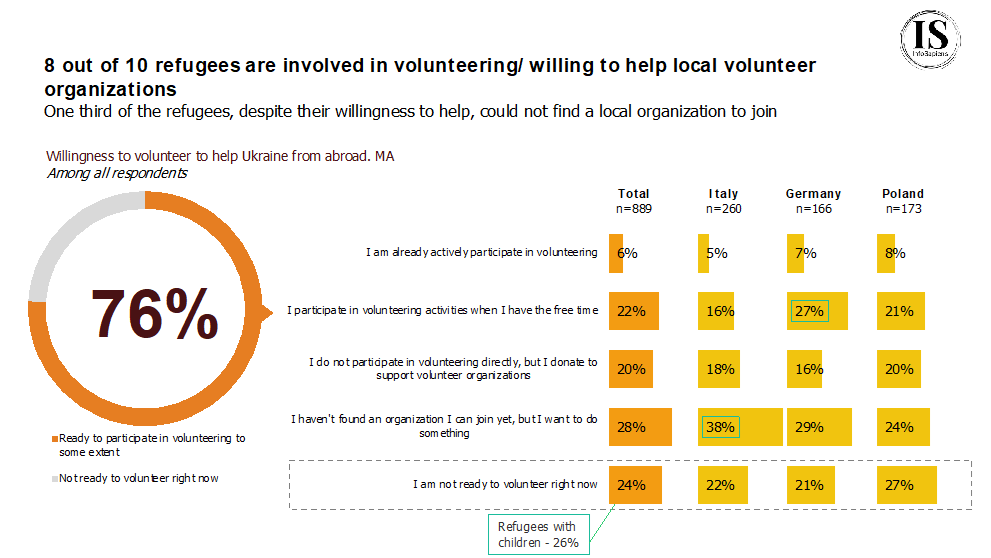
73% of the refugees are satisfied (rated 7+ out of 10) with their stay abroad, with about 80% in Germany and Poland and 62% in Italy. The refugees without children rate their stay abroad better than the refugees with children – an average of 7.3 versus 7.7.
Complicated and long legalization process in the country is a key factor of indignation. The refugees complain that prolonged red tape restricts access to promised benefits (financial support/assistance with housing/access to medical services, etc.) and, most importantly, to the labor market. Since a significant proportion of refugees experience a significant reduction in income and loss of regular employment, the lack of work abroad makes it difficult for them to stay there.
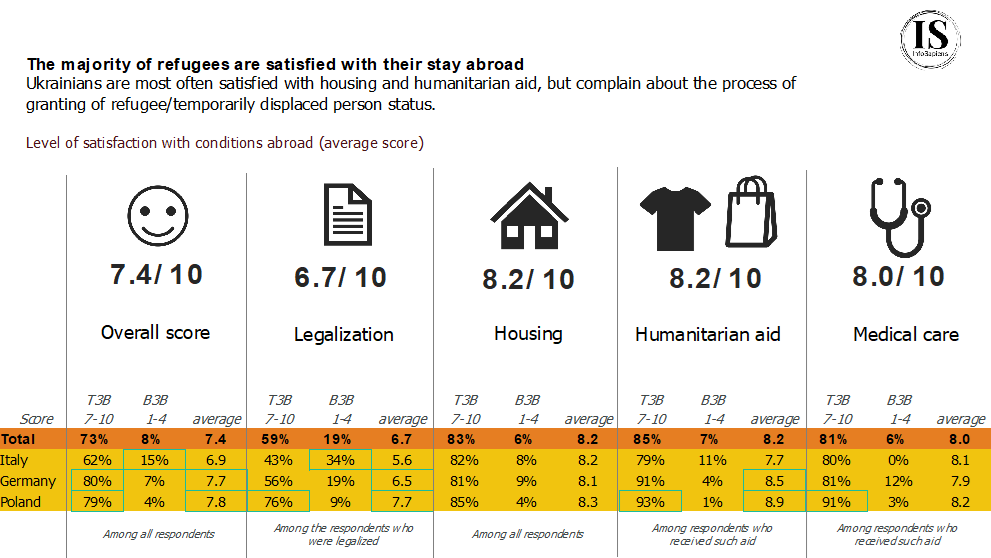
87% positively assess the attitude of locals to them: most often in Poland (93%), least often in Italy (84%).
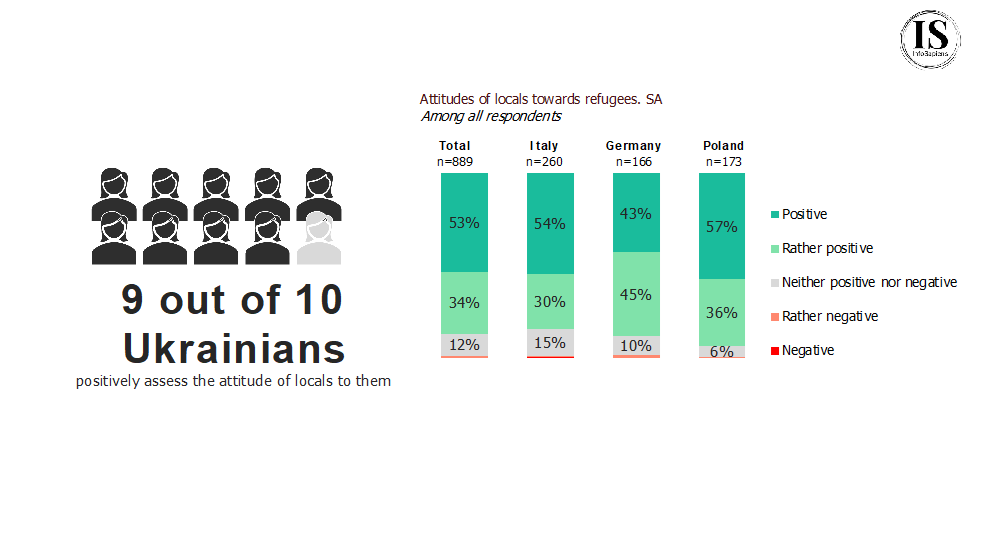
At the same time, 12% faced trouble on the part of local residents: 8% - contempt, 3% - violations of rights, 1% - crime, 1% - corruption.
96% of the refugees experience various negative states. The most common negative states include: confusion, sense of hopelessness (55%), feeling guilty for those who stayed at home (50%) and emotional instability (50%).
39% of the refugees cannot control at least one negative state on their own (most often in the case of guilt and apathy – 4 out of 10 and 3 out of 10 refugees, respectively). However, for most refugees, the intensity of such conditions is moderate and they can cope with negative emotions relatively easy.
Young (16-34 years old) refugees are more likely to experience strong negative emotions. Young refugees have a higher share of those struggling with guilt, emotional instability, apathy and anger.
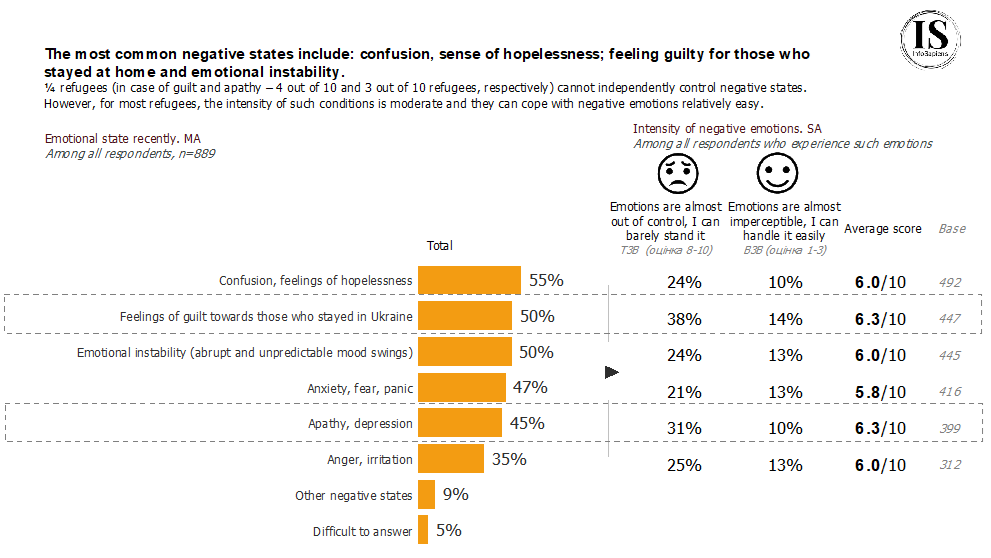
50% of the refugees plan to return to Ukraine after the official lifting of martial law, and another 38% are ready to take a risk and return at the first opportunity. The refugees from the south and east of Ukraine plan to return home earlier than the refugees from other regions. 7% of the refugees do not plan to return home – this roughly corresponds to the estimate provided by Info Sapiens in March, according to which 12% of the refugees do not plan to return[1]
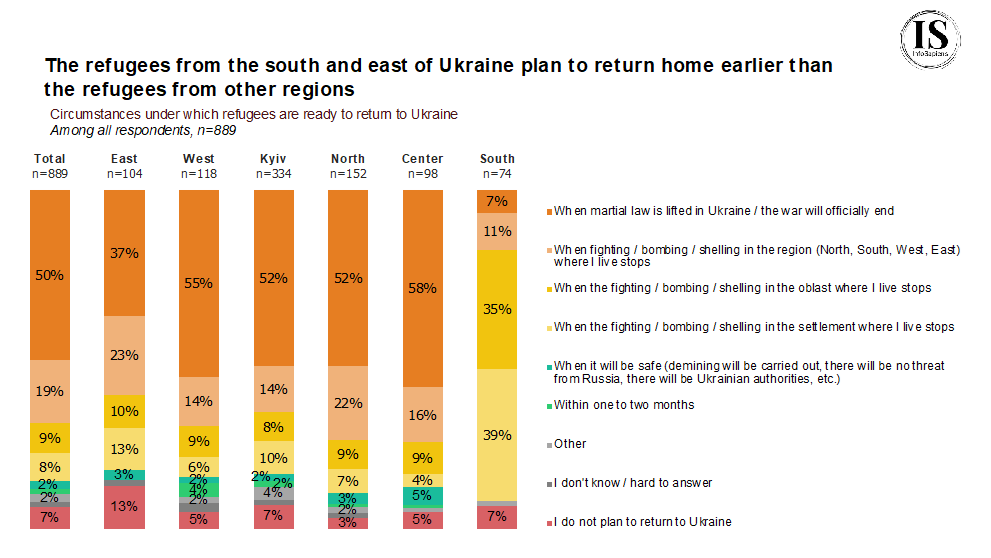
Research information
The study surveyed 889 respondents aged 18 years old and older using the method of online interview, in cooperation with the Apostolic Exarchate in Italy. The survey was conducted from 22 April to 7 May. The sample is not representative of all refugees, as the respondents were recruited using the "snowball" method. The largest number of the respondents was interviewed in Italy (260), Germany (166) and Poland (173), while in the rest of the countries there were not enough respondents for a separate analysis.
